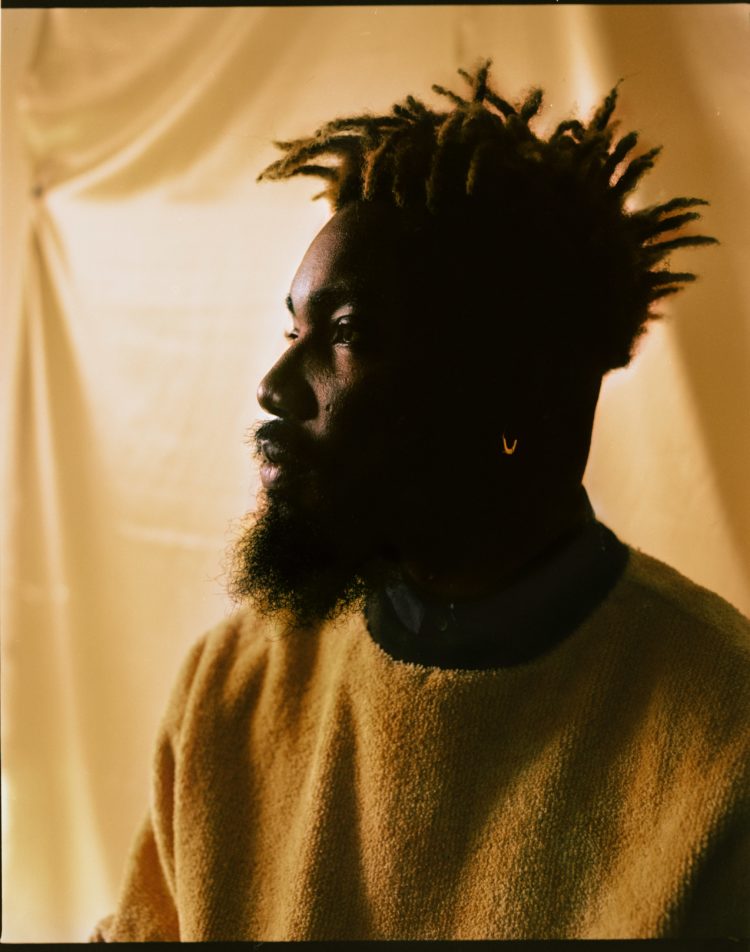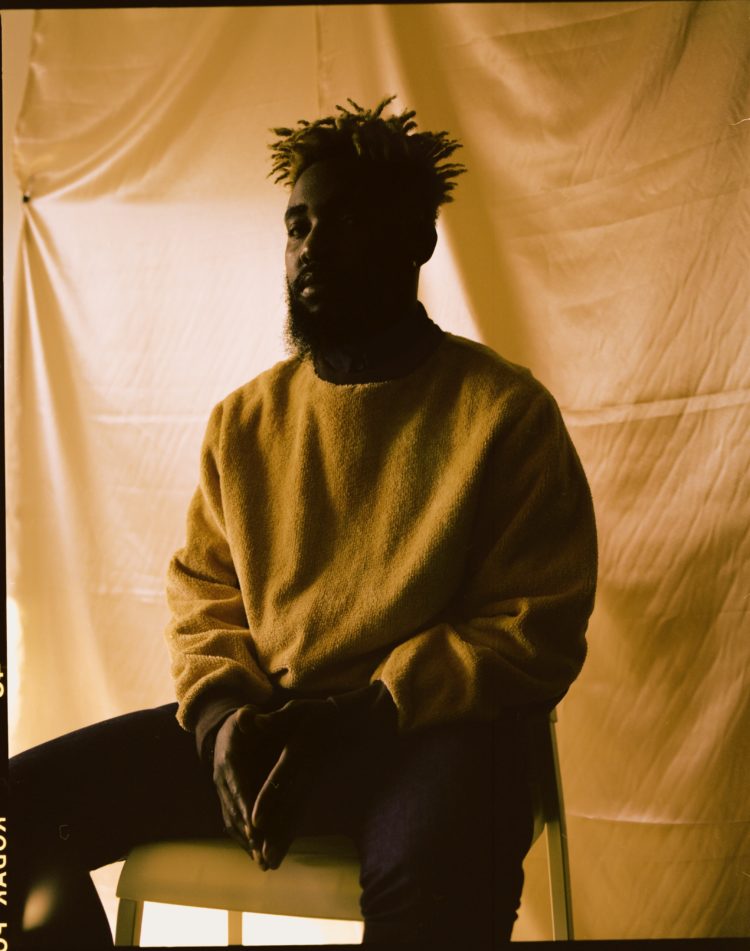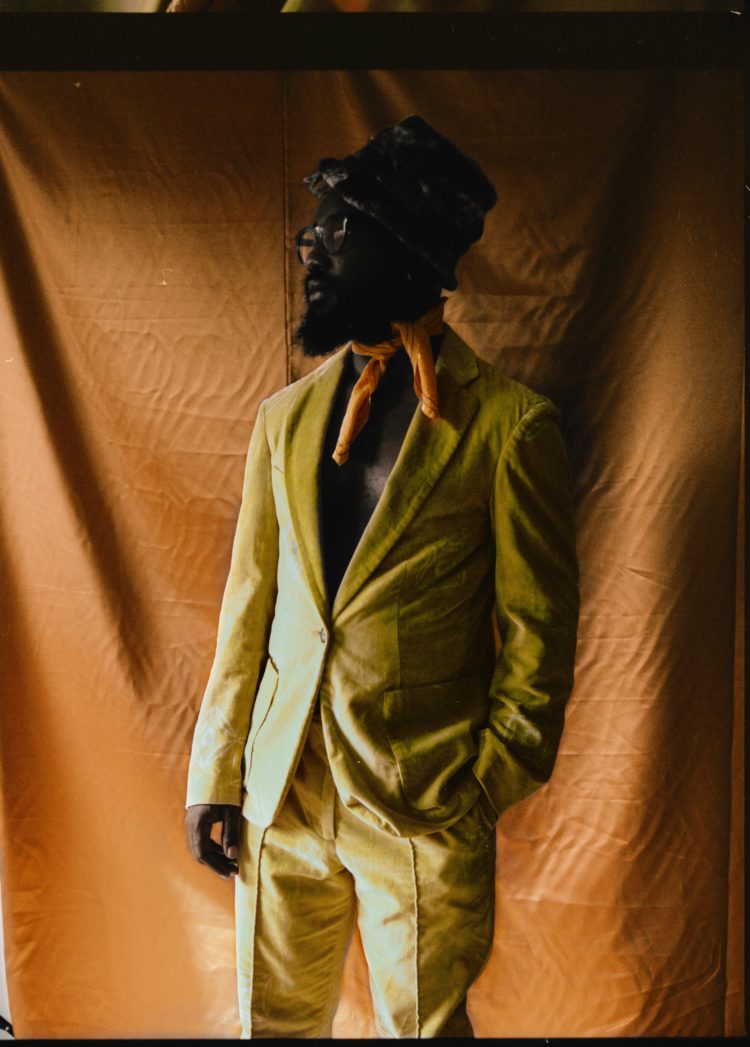I met Eli Fola a year ago at a screening of my film Bigger Than Africa, which was held at the United Nations Headquarters in New York City. I was already a fan of his work before our first encounter. I felt that the sound of his music has a therapeutic effect on me, and his Yoruba influence always takes me back to my own Nigerian roots.
What attracted me to Eli’s work is that he pioneered a new music genre and live set, which is sometimes tagged as “Yoruba Tech Soul” on streaming platforms. He creates a fusion of traditional Nigerian sounds, electronic, jazz, house and classical music.

Eli Fola has performed at an Art Basel event in Miami, opening for Lil Wayne, 2 Chainz, A$AP Rocky and Swizz Beatz, and he was recently recognized by The New York Times as an artist worth paying attention to.
Our conversation happened to coincide with the latest Nigerian social uprising against police brutality, with the hashtag #EndSARS emerging at one point this past weekend as the most used on Twitter. Basically, many Nigerians are calling for the banning of the Special Anti-Robbery Squad, a unit of the Nigerian Police Force.
I was so excited to catch up with him following the release of is new EP, Soundscape To Freedom, which explores the social unrest that took place in the U.S. these past few months as the nation learnt to love through the pandemic. This interview was conducted while he was vacationing and working in Tulum, Mexico.
How are you enjoying your vacation in Tulum?
My stay in Tulum has been amazing. There was so much going on in the USA and I felt that I needed a little break from the craziness. Especially with the pandemic, and restrictions on certain things. Travel is a way of escape for me and also an opportunity to experience different cultures and environments.
As an artist, I believe it’s important to be able to travel and be inspired by different cultures. Prior to the pandemic I was supposed to be doing a lot of traveling. I am grateful that things are opening back up little by little and it’s happening for me. I got the opportunity to DJ at Taboo Beach Club and Mia Beach Club in Tulum, these are the best places for dance music in Tulum.

Where did you grow up and how has your upbringing shaped your perspectives on life?
I was born in Lagos, Nigeria. I lived there for most of my life before moving to the United States. My upbringing has definitely shaped the person that I am today. I grew up going to church with my parents, and that is where I started to learn how to play several musical instruments. So the way I approach my art is with a sense of spirituality and consciousness because of the lessons that I learnt growing up.
How old were you when you moved to the U.S.?
I was 19 when I moved to the US. I am 30 years old now.
How did your childhood inform your art?
Growing up in Nigeria, my Dad played a lot of vinyl records of artists such as Fela Kuti, Ebenezer Obey, King Sunny Ade, Ayinla Omowura, and Orlando Julius, so I grew up with music in the house. I also come from a family of Yoruba talking drummers. My grandfather was the chief talking drummer to one of the Kings in Osun State, in Nigeria, and most of my uncles played the drums.
I was also exposed, early on, to different styles of music such as jazz, classical music, salsa, and a lot of American popular music including hip-hop. Because of all that, growing up, I had a broader sense of music from different parts of the world.
Nigerian parents usually want their children to become lawyers or doctors. How did you convince your parents that becoming an artist was your calling in life?
My parents knew that I was passionate about music from a very young age, but when I came to the United States, my Dad wanted me to follow a different path. He felt that being an African musician in the United States wouldn’t be sustainable. I had to convince him that I am unique in what I do and that I would be able to make it work. He insisted that I get a Masters degree, which I did, and I am grateful for that.
Before he passed away, he began to see that I was making money doing what I love and he began to slowly approve of what I do. My mother has always been supportive of my career choice and she is happy that I am doing what I love.
Soundscape to Freedom is a project inspired by the social uprising in America, what’s the message you’re trying to share as an African artist?
Soundscape To Freedom, to me, is like a letter of empowerment. It is directed at all Black people in the world, encouraging them to embrace their brilliance, excellence and to also be who they truly are without fear of trying to please anyone. Also, I want Black people to know that we are royalty living in this world.

As a Nigerian native who now lives in America, do you think Black Lives Matter can resonate meaningfully across the African continent?
I think the way the BLM movement resonates in America is different from the way it resonates in Africa. This is because of the societal difference, and not everyone in Africa will understand the scope of the BLM movement in America, but among the millennial generation in Africa I think they are inspired by the movement and it makes them want to protest injustice in their countries as well.
I also think BLM is a global message that should resonate with all Black people worldwide who are facing oppression from the system that was meant to protect them.
Do you think BLM can resonate with the current Nigerian uprising against police brutality?
As stated previously, I believe the BLM movement is resonating with the youths and millennial generation in Africa. That’s why a movement like #EndSARS can bear results. I think the youths are tired of the way the government is leading the people and they are willing to let their voice be heard.
See someone’s child 😭 😭 💔💔#EndSarsNow #SarsMustGo #SARSMUSTEND #EndPoliceBrutalitynow #EndSARS #Surulere #SURULEREPROTEST pic.twitter.com/gFcIxhFk3T
— Oluwabetty (@_bettyesther) October 12, 2020
Although BLM is a global movement, I think certain groups in Africa might not fully get how important it is. I also think BLM is a global message that should resonate with all Black people worldwide who are facing oppression from the system that was meant to protect them.
You can discover Soundscape To Freedom on this Bandcamp link.
